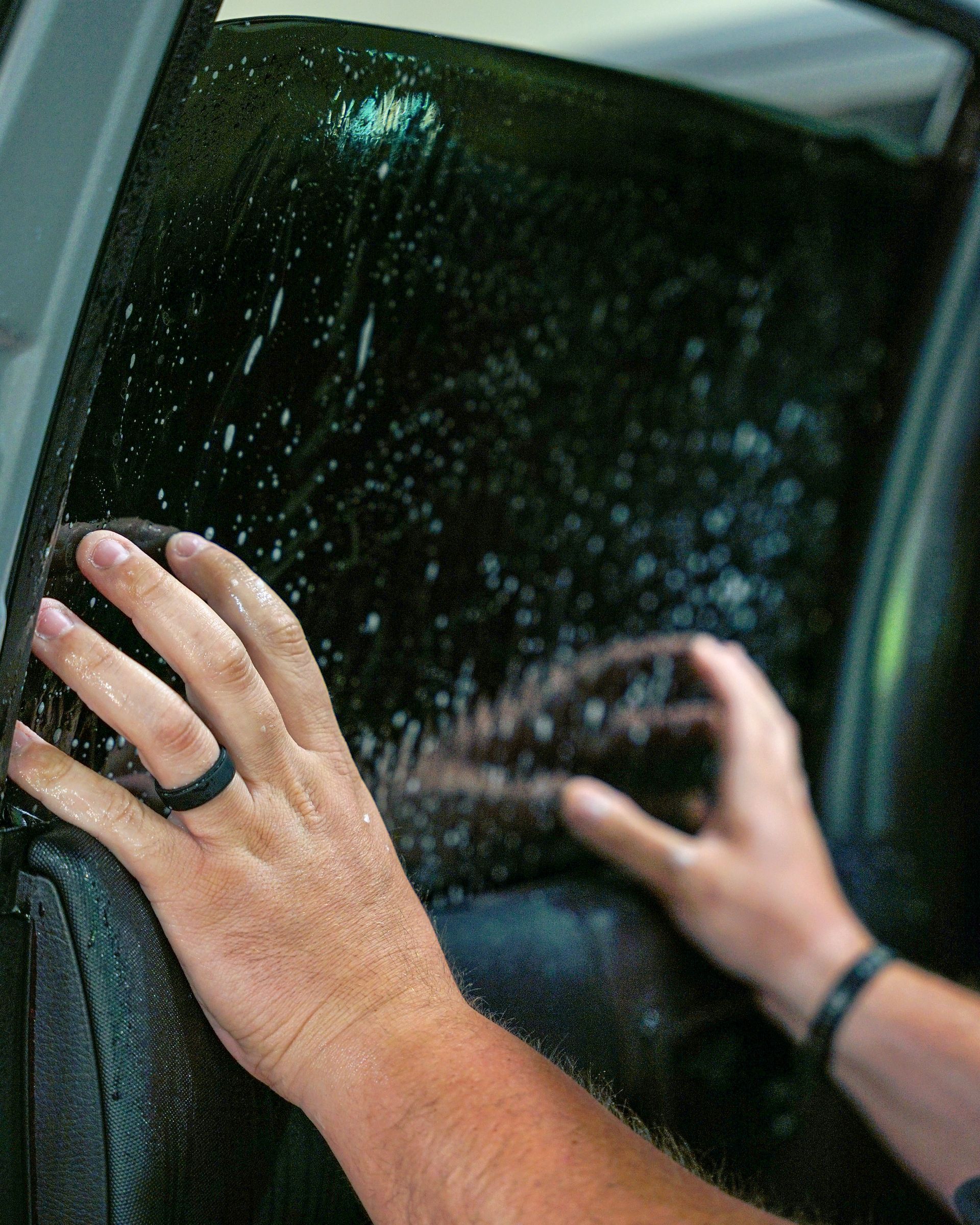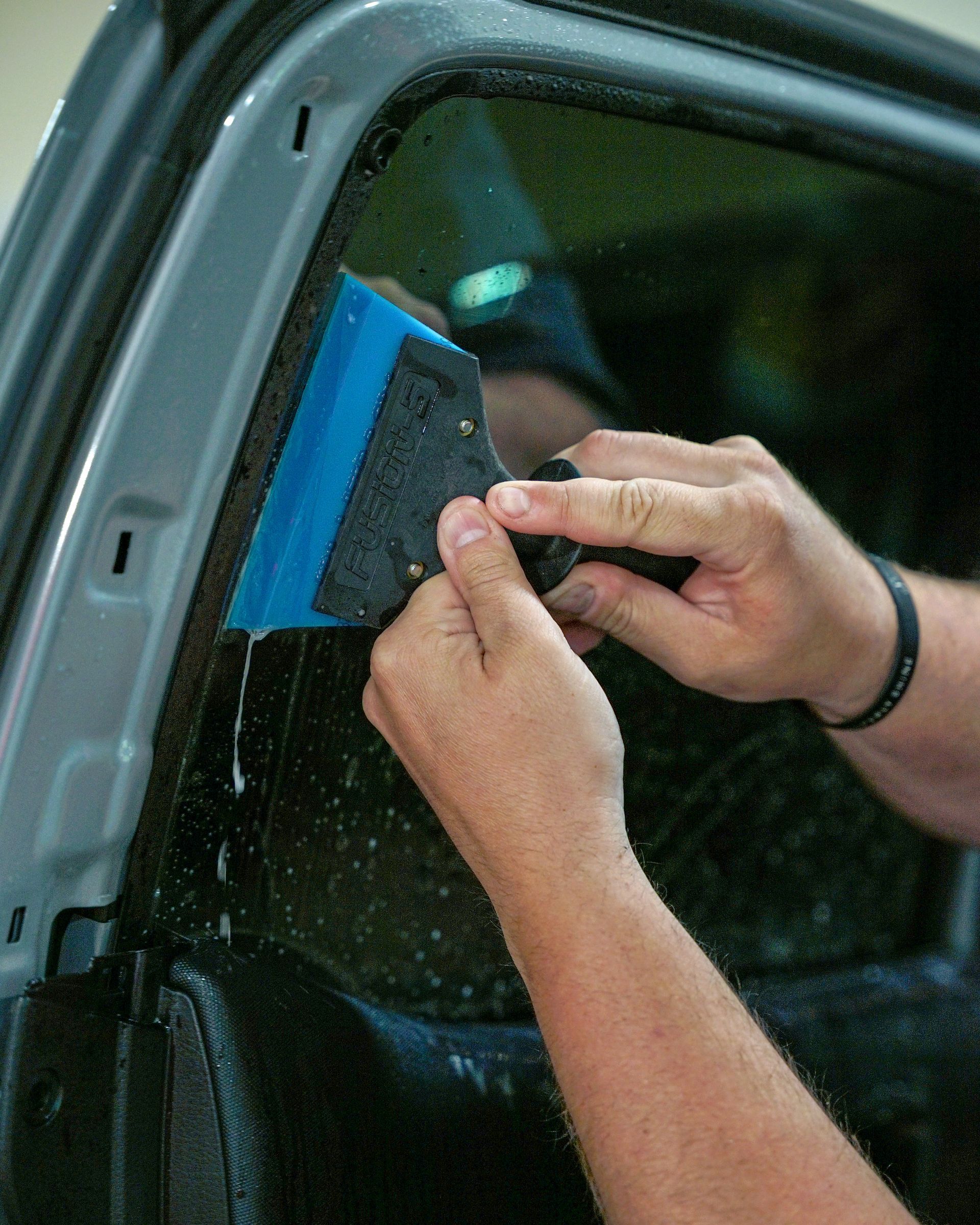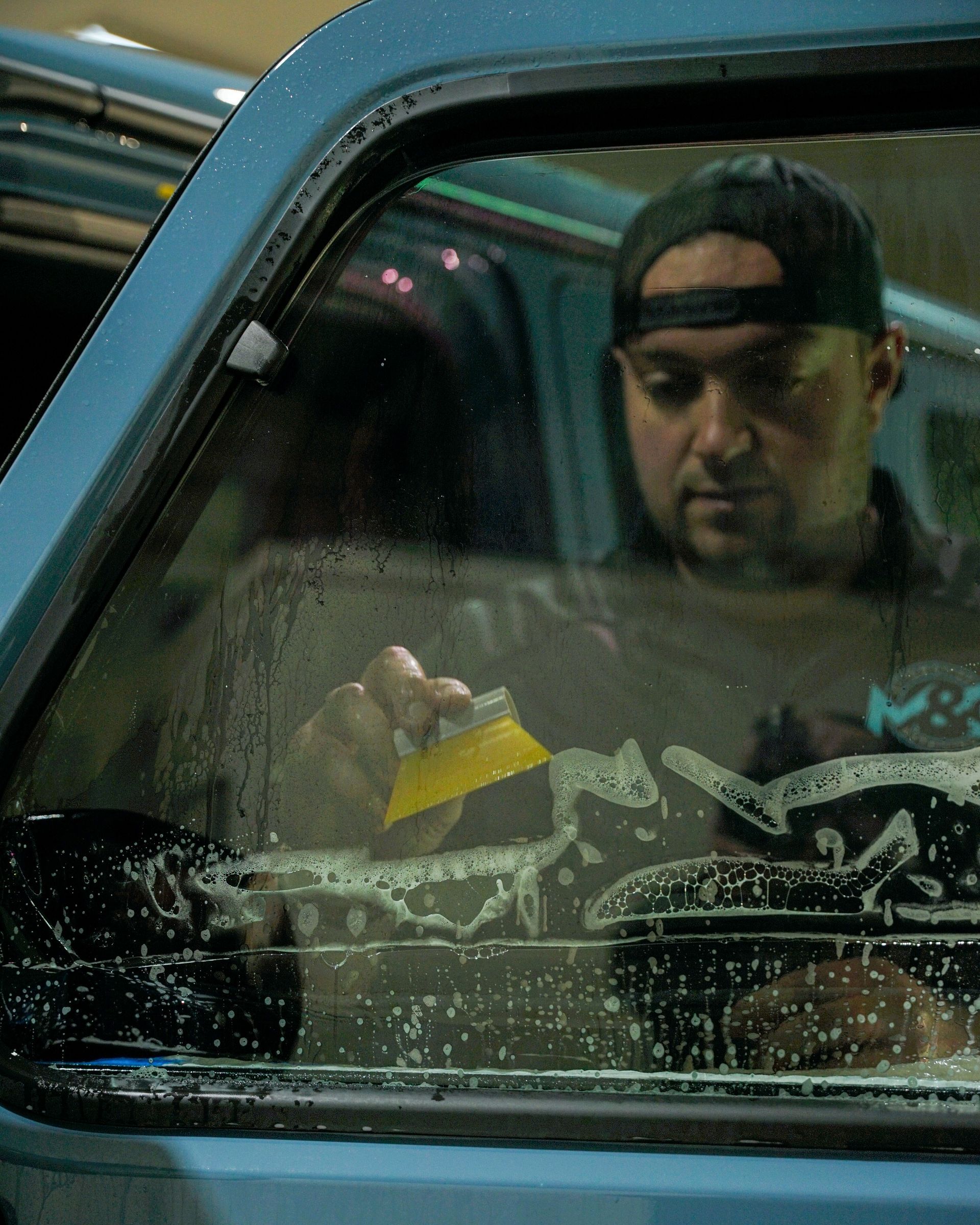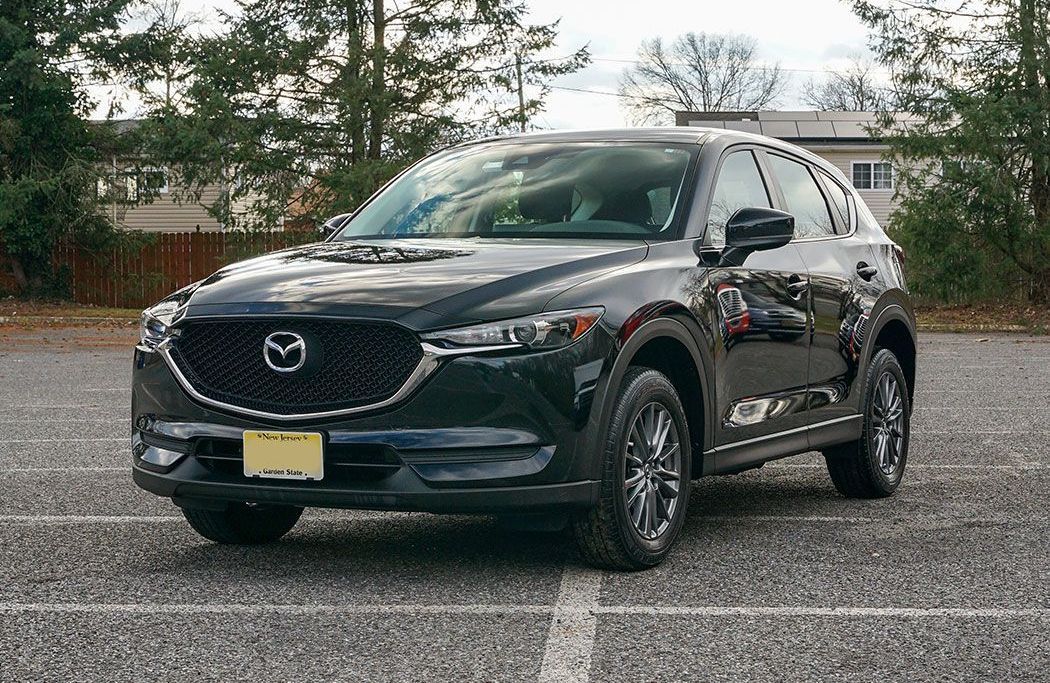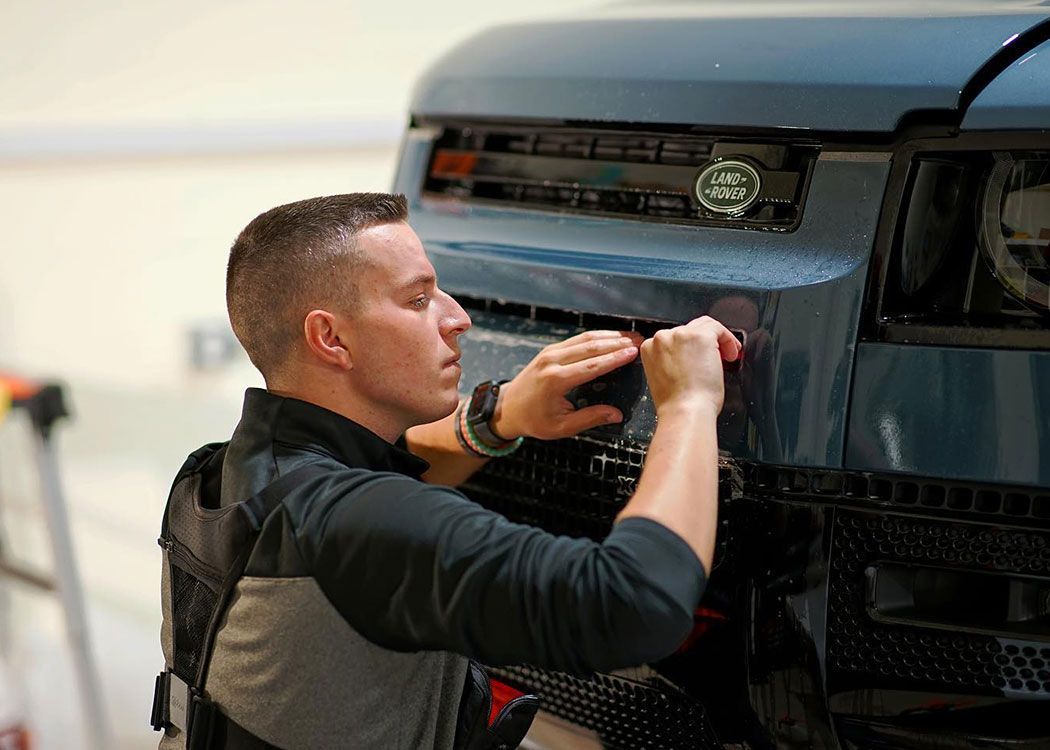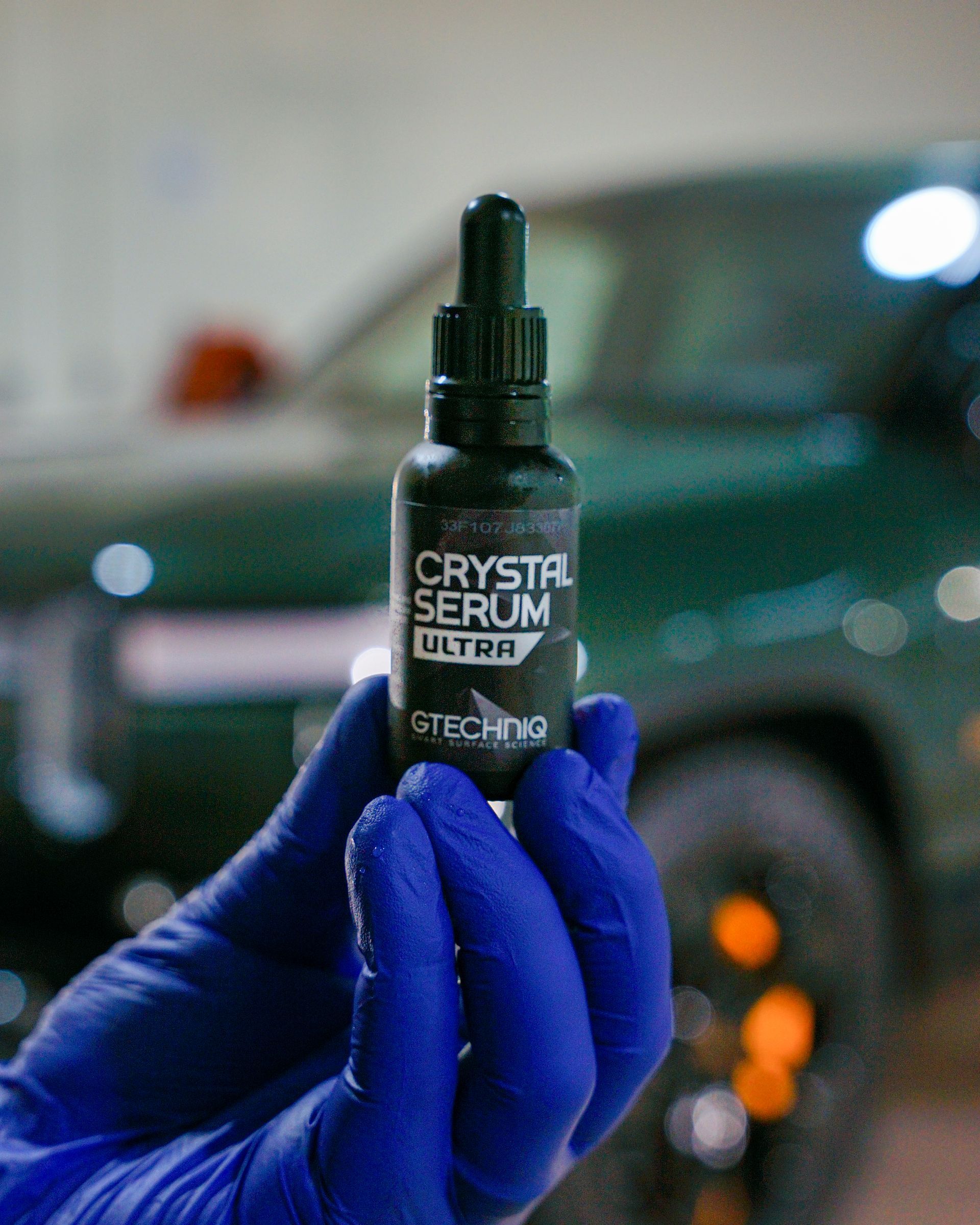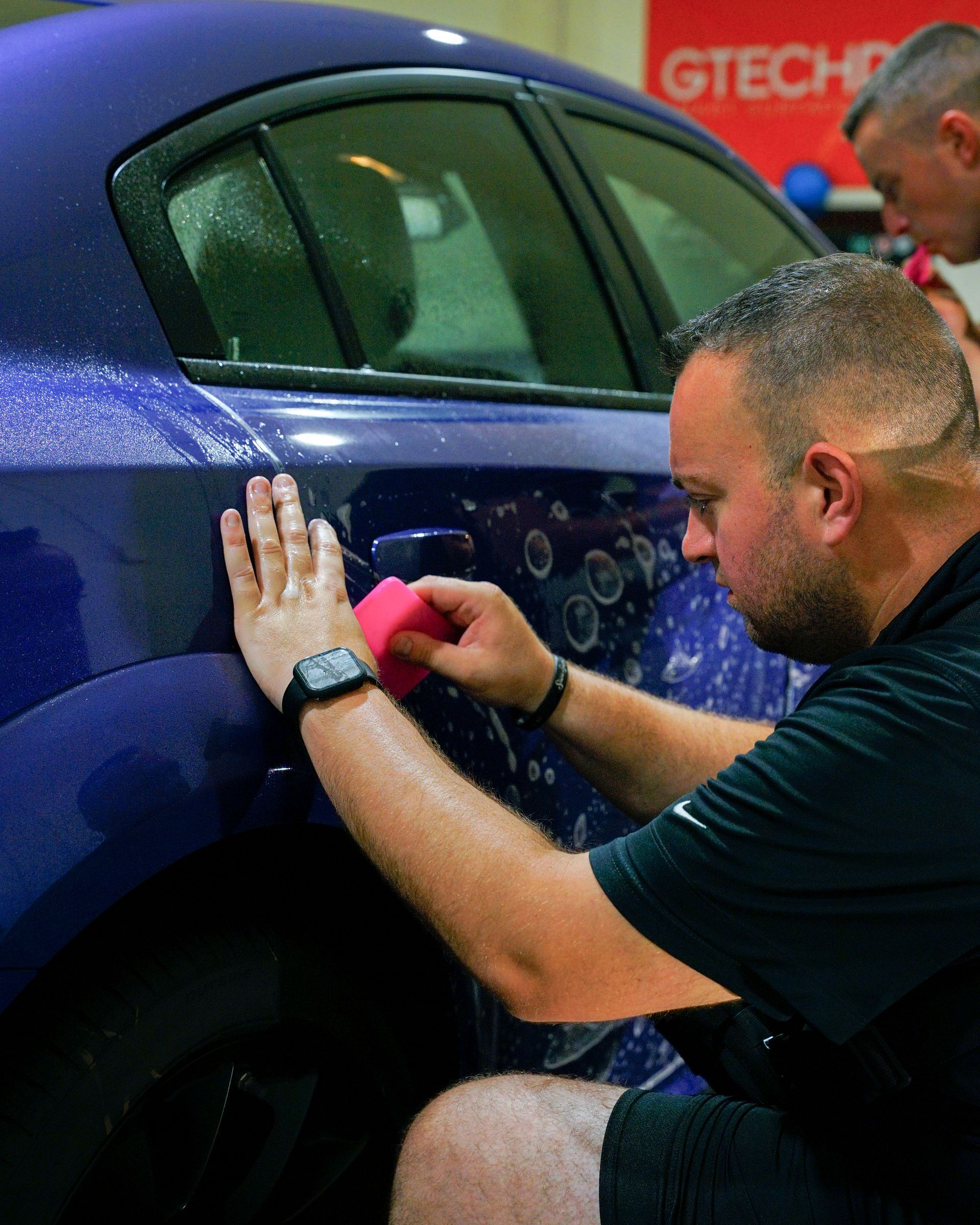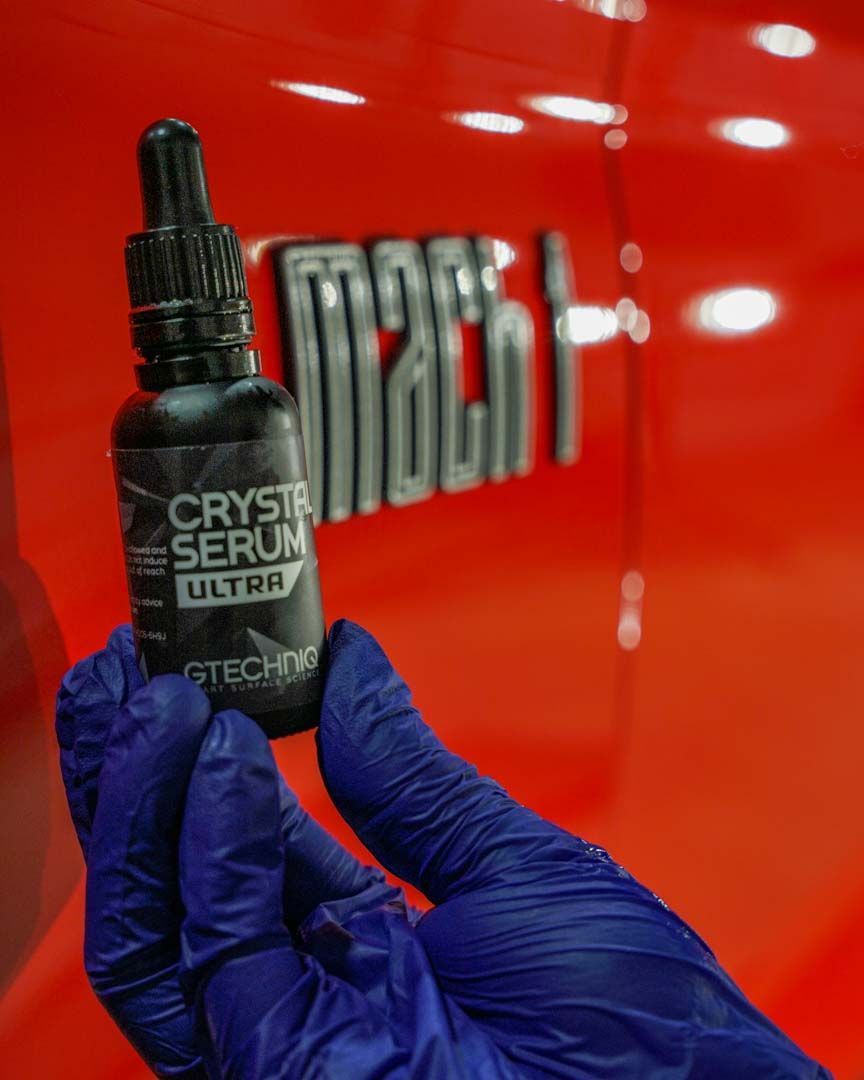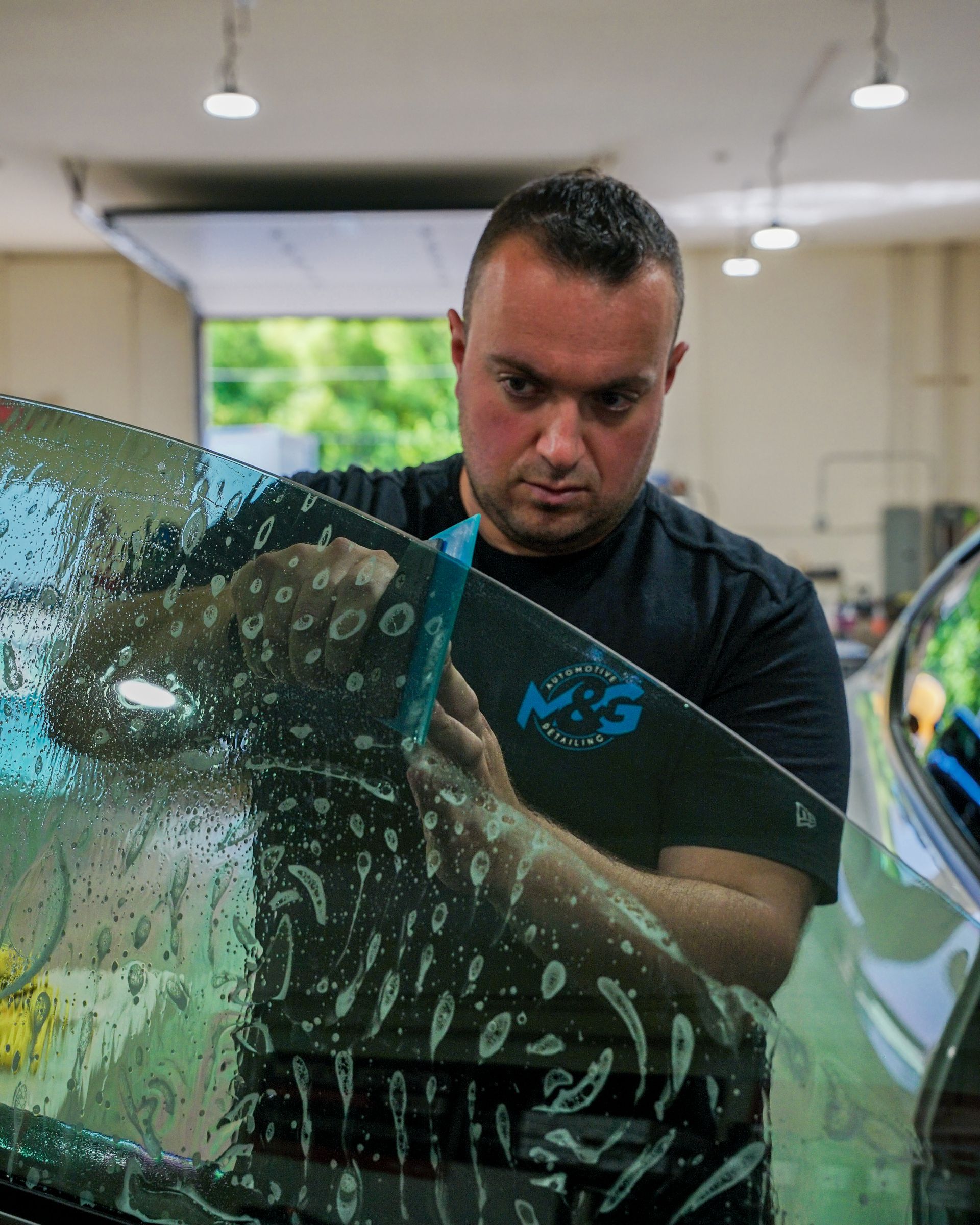Reduce Heat Build-Up in Your Car with Window Tinting: A Guide for Vehicle Owners
Have you ever stepped into your car on a scorching summer day only to feel like you're entering an oven? This is a common dilemma that many car owners face. Fortunately, there's a practical solution that can help keep your vehicle's interior cooler: window tinting. High-quality window tints can decrease car interior temperatures during hot weather, making your daily drive much more comfortable. Lowering interior heat is just one benefit of window tinting.
Window tinting helps prevent heat build-up in vehicles by blocking the sun's infrared radiation, which reduces the amount of heat that enters the interior. This keeps the car cooler and more comfortable, making it easier to maintain a pleasant environment while driving.
How Window Tinting Reduces Heat
High-quality window tinting significantly reduces heat in your vehicle by adeptly blocking and reflecting solar radiation. Advanced window films, like ceramic or metalized options, serve as a robust shield against harmful UV rays. Ceramic window tints are particularly effective in reducing heat while maintaining optimal clarity and visibility, ensuring you enjoy the view outside without compromising on comfort. When it comes to reducing heat, ceramic films stand out due to their infrared rejection properties, blocking 50-70% of infrared radiation. This results in a significant reduction in both the interior temperature of your car and the need for excessive air conditioning. This substantial heat reduction not only enhances comfort but also leads to energy savings by reducing the strain on your vehicle's cooling system.
The reduction in interior temperature achieved through window tinting isn't just about comfort; it's also about safety. Excessive heat inside a vehicle poses health risks, especially to young children and pets. By effectively minimizing heat build-up, window tinting helps create a more comfortable and safe environment for all occupants. Beyond offering UV protection and privacy enhancements, the core purpose of window tinting is to create a cooler, more comfortable environment within your vehicle. This directly translates into reduced reliance on air conditioning, potential cost savings on fuel consumption, an improved driving experience, and most importantly, a safer and more enjoyable journey for you and your passengers.
Factors to Consider When Choosing Window Tint
Selecting the right window tint for your vehicle involves considering several key factors to ensure optimal performance and compliance with local regulations. Let's explore some important considerations to keep in mind as you make your decision.
- Tint Type: When choosing a window tint, it's important to consider the type that best suits your needs. There are various options available, including dyed, metalized, carbon, and ceramic tints. Each type offers different performance characteristics and comes with its own set of advantages and considerations. Ceramic tints are known for their exceptional heat reduction capabilities while maintaining visibility and clarity. Although they come at a higher cost compared to other options, their heat-blocking efficacy sets a high standard in the realm of window tinting. On the other hand, dyed film is a more affordable option but provides limited heat reduction compared to ceramic tints. It is, however, effective in enhancing privacy and reducing glare. Meanwhile, metalized film offers exceptional heat rejection but may interfere with electronic signals in the vehicle. Carbon film, known for balancing heat reduction and signal interference, can be an ideal choice for individuals seeking a middle ground between performance and compatibility.
- Visible Light Transmission (VLT): Another crucial aspect to consider when selecting window tint is visible light transmission (VLT). This refers to the amount of light the tint allows to pass through the windows. For effective heat reduction while ensuring adequate visibility, a VLT of 20% to 50% is generally considered ideal. It's important to strike a balance between reducing heat and maintaining sufficient visibility for safe driving, especially during low-light conditions or at night. For instance, a VLT of 20% implies that only 20% of visible light is transmitted through the window, resulting in darker tinting that can provide stronger heat reduction benefits. On the other hand, a VLT of 50% allows 50% of visible light to pass through, offering a lighter tint that still provides moderate heat reduction while maintaining better visibility.
- UV Protection: In addition to reducing heat, another significant benefit of window tinting is its ability to block harmful UV radiation from entering the vehicle. When considering window tints, ensure that the selected tint provides sufficient UV protection by blocking at least 99% of UV radiation. This not only helps protect your skin from harmful UV rays but also serves to safeguard the vehicle's interior from fading and degradation due to prolonged sun exposure. By prioritizing UV protection in your selection of window tints, you contribute to preserving the condition of your vehicle's interior while promoting a safer and more comfortable driving experience.
With these factors in mind, selecting the right window tint for your vehicle becomes a well-informed decision that aligns with both your performance needs and regulatory requirements.
Energy Savings from Window Tinting
When you're out running errands or embarking on a long road trip, your car's air conditioning system can significantly impact fuel consumption. That's where window tinting comes into play. By reducing the amount of heat that enters your vehicle, window tints alleviate the strain on your air conditioning system, making it operate more efficiently. Window tinting can result in a noticeable reduction in interior temperature, typically ranging from 15 to 20 degrees Fahrenheit. Not only does this make your driving experience more comfortable, but it also leads to substantial energy savings.
On average, reducing the reliance on air conditioning through window tinting can save vehicle owners up to 3% to 5% on their fuel costs annually. This not only helps save money but also contributes to lowering the vehicle's carbon footprint. Imagine the impact of a small change, like window tinting, on your overall fuel costs and environmental contribution. It's quite astounding! During scorching hot summer days when the sun beats down on your car, window tinting provides a protective shield, preventing excessive heat buildup inside. As a result, your air conditioning system operates more efficiently and consumes less energy.
The energy savings from reduced fuel consumption not only benefit your wallet but also have a positive environmental impact. By decreasing the demand for fuel, window tinting contributes to lower overall carbon emissions from vehicles, aligning with eco-friendly practices. Window tinting offers a simple yet effective way to reduce energy consumption and minimize the strain on your vehicle's air conditioning system, ultimately leading to significant cost savings and environmental benefits.
Legal Aspects and Compliance
When it comes to enhancing our vehicles with window tint, adhering to the law is paramount. Regulations concerning window tinting vary by location, encompassing states, countries, and even cities. Most importantly, these laws dictate the darkness level allowed for windows—measured as the Visible Light Transmission (VLT) percentage—and which windows can be tinted at all. Let's dissect these legal considerations.
The VLT percentage denotes the amount of light permitted to pass through the window. For instance, in a state with a VLT limit of 35%, 35% or more light must pass through the tinted window. This regulation ensures that drivers maintain good visibility, especially at night or in low-light conditions. Before selecting your preferred tint level, understanding your local regulations is crucial. While some states permit darker tints for rear windows and back windshields, there are often stricter limits for front-side and windshield tints to ensure driver visibility and enable law enforcement to easily see inside the vehicle for safety purposes.
Non-compliance with these regulations can lead to substantial fines and citations from law enforcement officers. In such instances, vehicle owners would need to remove or adjust the illegal tint to meet the legal standards before being allowed to continue driving their cars on public roads. Understanding these regulations is crucial when considering window tinting for your vehicle. It ensures compliance with the law while aiding in making an informed decision about the type of window tint that best suits your needs while maintaining visibility and adhering to legal requirements.
Additional Benefits of Window Tinting
When you think about window tinting, the first thing that comes to mind is probably heat reduction, and you're absolutely right. Tinted windows can do wonders for keeping your car cooler. But did you know that it has other advantages as well? Imagine driving on a busy road, feeling like you're in a fishbowl with everyone looking in. That's where enhanced privacy comes into play. Darker tints make it harder for people to see inside, giving you a greater sense of privacy and security. Another significant benefit is protection against glare. When sunlight or headlights hit the windshield, it can be distracting and even dangerous. Window tinting reduces this glare, improving visibility and making driving safer for you and your passengers.
Now, let's talk about the interior of your car. The sun's UV rays can wreak havoc on your vehicle's interior materials, causing them to fade and crack over time. Window tinting acts as a shield, blocking out harmful UV rays and helping preserve your car's interior. By reducing the amount of sunlight that enters your car through the windows, window tinting can significantly extend the life of your dashboard, seats, and other interior components. But there's more to it than just keeping your car looking new. In the unfortunate event of an accident, the film used in window tinting can act as a protective layer. It helps hold shattered glass together, reducing the risk of injuries from broken glass shards.
Think of it as a safety net—something you don't really notice until you need it—just like a seatbelt or airbag—a feature that's always there quietly doing its job of ensuring your safety. In a way, window tinting is like a personal bodyguard for your car—it works behind the scenes to keep you and your vehicle protected from various external threats without drawing attention to itself. So, while heat reduction is undoubtedly one of the main draws of window tinting, the additional benefits make it an all-round win for both comfort and safety on the road. The array of benefits offered by window tinting showcases how it goes beyond merely reducing heat build-up.
Exceptional Window Tinting Services in Voorhees, NJ
Transform your driving experience with M&G Automotive Detailing’s
top-notch window tinting services in Voorhees, NJ. Our expert team delivers exceptional results, enhancing your vehicle's style, comfort, and privacy while providing crucial UV protection. Contact us today to book your appointment and enjoy the benefits of professionally applied window tinting that keeps your car cool and protected from the sun's harmful rays. Call us at
(609) 923-3123 to get started!

